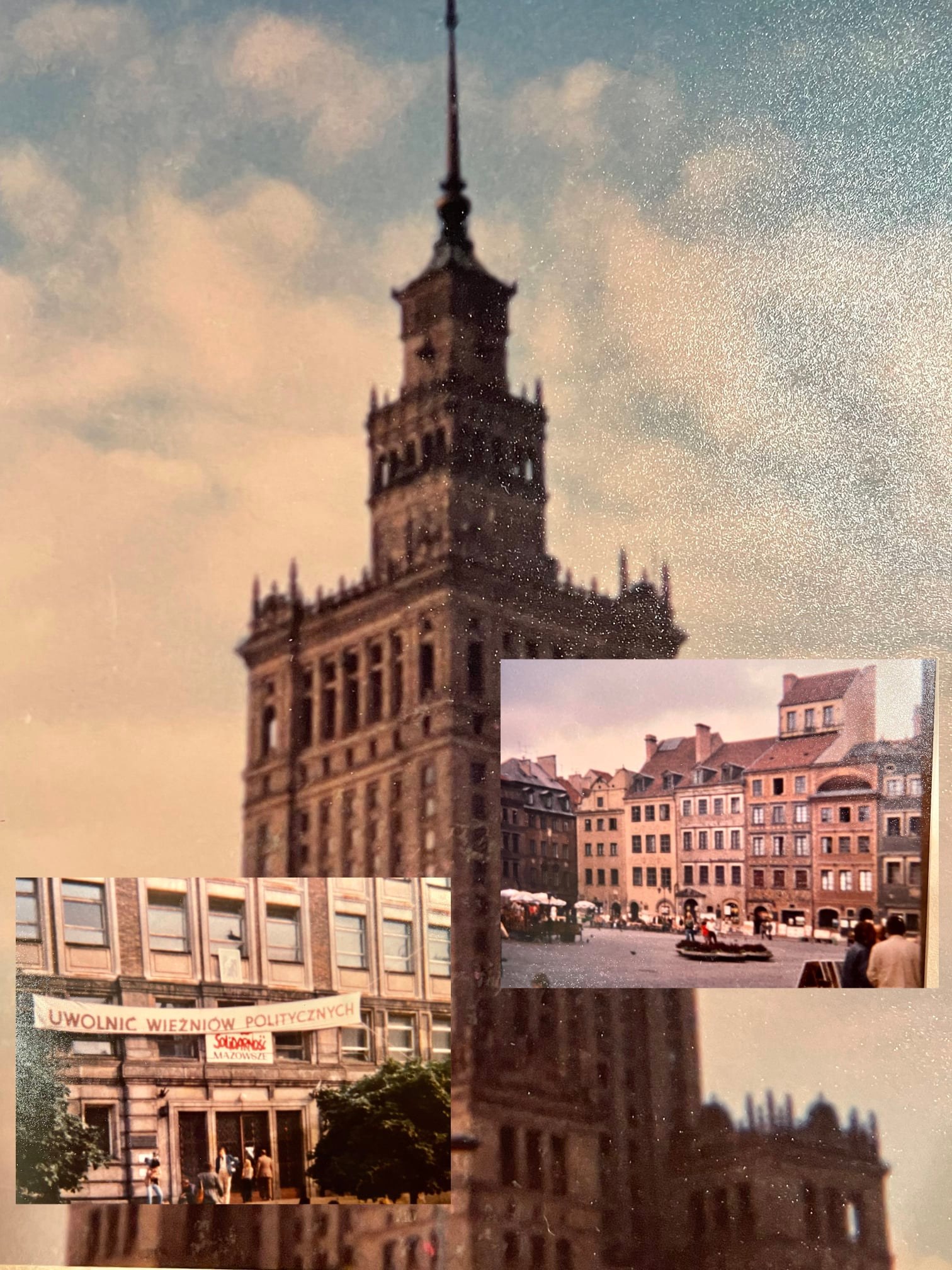APRIL 11, 2022 – My next stop was Warsaw. If it wasn’t the birthplace of the Solidarity Movement, it was a cauldron of history and the vortex of current political protest. I covered much of the city on foot, including stops at various shops, bookstores, and a music store where, for next to nothing, I purchased high-end editions of Chopin Nocturnes and Études for my parents and a Peters Edition (East German) of the full score to Beethoven’s Ninth. Given the number of churches, I ventured into several, including the Church of the Holy Cross, where Chopin’s heart is entombed inside a pillar. (As he lay dying in 1849 in his adopted country of France, he told friends that he wanted his heart to be buried in Poland.)
I also gawked at the “Gift of the Soviet People”—a towering monstrosity of post-war Soviet architecture, sited in the heart of the city; a building with an observation floor on top, affording a panoramic view of the city. Poles joked that the best view of the building was from the building looking outward—because from that perspective, you didn’t have to look at it.
Following Włodzimierz’s “itinerary” (see yesterday’s post), I found Solidarity headquarters—an impressive office building along a busy street. I gained entrance and was immediately overwhelmed by the rush of political activism—pods of Solidarity members locked in earnest discussion; runners carrying flyers for public posting; other people rushing up and down the corridors and in and out of meeting rooms. Inside a publicity room I purchased half a dozen Solidarity posters.
In witnessing this fervor, I thought about my Czech friends, who shared the Poles’ opposition to their Soviet masters but whose spirit of active resistance had been crushed by Soviet tanks. What was it about Poland, I wondered, that was driving the country to unprecedented levels of defiance?
I sought answers at a hotel restaurant next to the University of Warsaw. The establishment was abuzz with a lunchtime crowd of students and professors, and in the usual manner, I waited for an empty chair. In ensuing conversations, I learned how emboldened people had become in throwing off the inequities, corruption, and repression of the old regime. The Poles were convinced that “this time”—in contrast with failed attempts of the past—their demands would be met. “This time,” all Poles were part of the movement; the vocal dissenters weren’t only isolated workers or students or the intelligentsia. Active, relentless participation by a society united had created irrepressible momentum until . . .
The Kremlin said “enough is enough,” whereupon the President, General Wojciech Jaruzelski declared martial law on the night of December 12. (Curiosity got the better of me. In June 1982, six weeks before I started my law career back home, I ventured back to Poland to observe conditions under martial law. The hotel restaurant by the university was closed, and soldiers armed to the teeth occupied the hotel lobby. The Politburo in Moscow wisely refrained from using Russian troops to do the dirty work.)
(Remember to subscribe to this blog and receive notifications of new posts by email.)
© 2022 by Eric Nilsson
